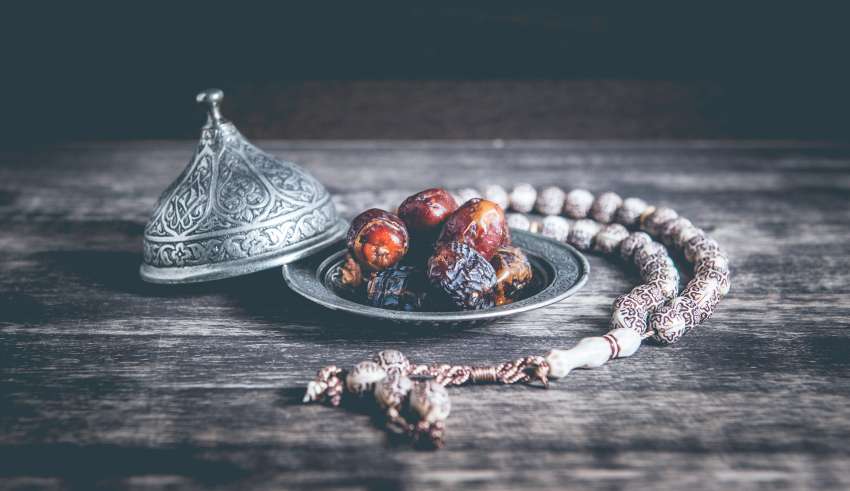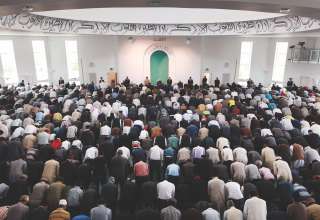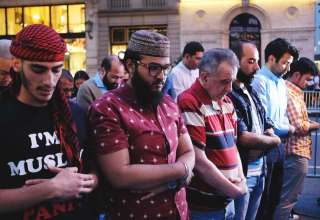
The Islamic Month of Fasting – How it Began?
Ramadan, the 9th month in the Islamic calendar, was established as a Holy Month for Muslims, after the Quran was revealed to the Prophet Muhammad (peace and blessings be upon him) on the occasion known as Laylat Al-Qadr, frequently translated as “the Night of Power”.
Observance of Ramadan is mandated in the Quran, where God Almighty says;
“The month of Ramadan (is that) in which was revealed the Quran, guidance for the people and a clear proof of guidance and criterion. [Noble Quran 2:185]
Since the cycle of the lunar calendar doesn’t match with the solar calendar, the date of Ramadan shifts approximately 11 days each year, marking the end with the Eid festivities.
The Trendy Fast – A Muslims Routine
Fasting is the key factor in Ramadan. During this month, Muslims fast from dawn to sunset, with no food or water. Before sunrise they have the Suhur or predawn meal. At sunset, families and friends gather for Iftar which is the meal eaten by Muslims to break the fast
Fasting became the newest trend when health gurus came up with an intermittent fast diet. Health coach’s, fitness experts and trainers started preaching it. This had nutritionists and medical associates think about fasting and Ramadan in detail. The Canadian Medical Association Journal concurs that there is a large body of research supporting the health benefits of fasting.
Lifestyle Change – The Islamic Way
This newest fad involves a lifestyle change. Waking up before sunrise, indulging in fitness training and then hydration, followed by slowly eating breakfast, in which you leave a portion of your stomach empty. Then fasting for 7-9 hours and eating one meal a couple of hours before bedtime.
If you study this routine in detail, you’ll realize this IS a Muslim’s way of starting the day. Ramadan or no Ramadan, Muslims wake up predawn, offer prayers and start their daily work.).
One of the main principles of good health is a balanced diet. Prophet Muhammad ﷺ emphasized the habit of eating less as a method of preventing sickness and disease. He said,
“The son of Adam does not fill any vessel worse than his stomach. It is sufficient for the son of Adam to eat a few mouthfuls, to keep him going. If he must do that (fill his stomach), then let him fill one third with food, one third with drink and one third with air.”
Things You Didn’t Know About Ramadan
1. Fasting is about spiritual & physical well-being. It provides a healthier and fulfilling life. Something Muslims knew over 1400 years ago.
2. By abstaining forbidden things for good 30 days, Ramadan helps Muslims rid of bad habits like smoking & backbiting.
3. Muslims break their fast with dates which are rich in vitamins, minerals, fructose and dextrose, all needed for a healthy body.
Health Facts
Dr. John Berardi, chief science officer of Precision Nutrition, in his lecture on intermittent fasting emphasized on the fact that fasting can help in controlling diabetes, weight reduction, prevent cancer and improves brain health.
Fasting Food and Obesity
Obesity is a leading preventable cause of death worldwide, with increasing prevalence in adults and children, even now in developing countries. It has emerged as one of the most serious public health problems of this century.
Mohammad Yawar Yakoob, Department of Nutrition, Harvard School of Public Health, Boston, USA, carried out a survey in which he found in a before-after study on obese individuals in Egypt that showed remarkable improvement in the overall health and wellbeing. Similarly, in another study on obese women with type 2 diabetes in Algeria, fasting resulted in significant improvement in glucose homeostasis.
Ramadan is God’s way of telling us that it is possible for us to refrain from an unhealthy lifestyle. If we live the way Prophet Muhammad ﷺ lived, there would be no obesity in this world.
Date Anyone?
The ideal way for a Muslim to break fast is with a date fruit. Date fruits are rich in vitamins, minerals, fructose and dextrose, all needed for a healthy body. Much more tasty and nutritious than a bar of Mars or Snickers.
Habits Build Strengths
As human beings, we know that if something is practiced repeatedly for a period of 4 weeks, it will become a habit and will stick with you for a lifetime. So Ramadan is a perfect time to quit bad habits like smoking, compulsive eating, irregular sleep pattern etc. This could be the beginning of a new, improved and better lifestyle.
It is out of sheer love for God that we become strong willed and refrain from legal things (such as eating food, having a relationship with our spouse). It just shows that if we can refrain from permissible things, then how easy it is to stay away from bad habits (like lying, cheating, backbiting, gossip etc.). We have enough potential and are strong enough to improve ourselves in the best possible way.
Ramadan – The Month of Quran
Ramadan is the month of Quran. It is advised to recite a lot of Quran in this month. Non Muslims with the capability to rationally think and analyze things should try reading the Quran at least once in their life. Quran provides complete guidance in every aspects of the human life. They would learn a lot from it.
Important Clarification
It is important to clarify that Muslims do not fast because of health reasons. Muslims fast in accordance to the divine commandment documented in the Quran. Fasting has historically been an institution commonly practiced by various religious communities (for example, during Lent by Christians and on Yom Kippur by Jews).
Allah states,
O you who have believed, decreed upon you is fasting as it was decreed upon those before you that you may become righteous – [Noble Quran 2:183]
Bottom Line
Fasting is all about spiritual and physical wellbeing. It could help you live a longer, healthier and fulfilling life. – A fact that Muslims knew from thousands of years ago. So Muslim or Non Muslim, lets welcome Ramadan and fast our way to a healthy, rejuvenated, trendy new self.













